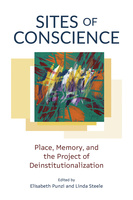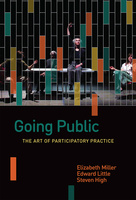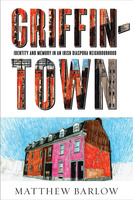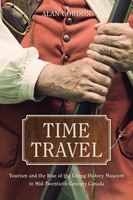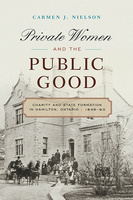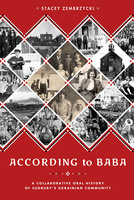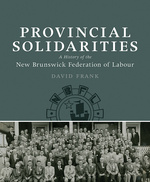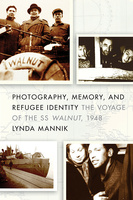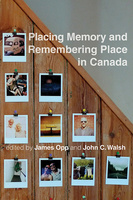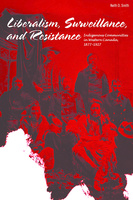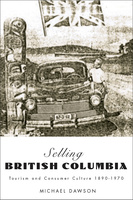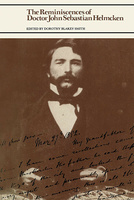Sites of Conscience
Place, Memory, and the Project of Deinstitutionalization
Sites of Conscience charts the importance of public engagement with histories, memories, and lived experiences of institutions in forging new directions in social justice with and for disabled people and people experiencing mental distress, in a context where deinstitutionalization has failed to fully recognise, redress, and repair the ongoing impacts of institutions.
Going Public
The Art of Participatory Practice
Going Public is a conversation among socially engaged practitioners in theatre, documentary media, the visual and multimedia arts, and oral history that explores how and with whom we collaborate, and why.
Griffintown
Identity and Memory in an Irish Diaspora Neighbourhood
This vibrant biography of Griffintown, an inner-city Irish Catholic neighbourhood in Montreal, brings to life the history of Irish identity and collective memory in this legendary enclave.
Time Travel
Tourism and the Rise of the Living History Museum in Mid-Twentieth-Century Canada
This fascinating look at Canada’s living history museums – pioneer villages and old forts where actors recreate the past – shows how they reveal as much about Canadian post-war interests as they do about settler history.
Beyond Testimony and Trauma
Oral History in the Aftermath of Mass Violence
By challenging the ways that survivors of mass violence are typically understood as either eyewitnesses to history or victims of it, the contributors to this volume ask us to go “beyond testimony” to embrace sustained listening and collaborative research design.
Hobohemia and the Crucifixion Machine
Rival Images of a New World in 1930s Vancouver
Private Women and the Public Good
Charity and State Formation in Hamilton, Ontario, 1846-93
An engaging history of the Ladies Benevolent Society and Hamilton Orphan Asylum and a broad consideration of the ability of women’s charitable work to bridge the nineteenth-century boundaries of public and private spheres.
Oral History at the Crossroads
Sharing Life Stories of Survival and Displacement
Drawing on a collaborative research project, this book provides an alternative model for how oral and public histories should be recorded and curated.
According to Baba
A Collaborative Oral History of Sudbury’s Ukrainian Community
This book employs new and critical approaches to oral history to write an insightful and deeply personal history of Sudbury’s Ukrainian community between 1901 and 1939.
Provincial Solidarities
A History of the New Brunswick Federation of Labour
A pioneering study of the New Brunswick Federation of Labour, this is the untold story of provincial labour solidarities that succeeded in overcoming divisions and defeats to raise the status of working men and women within New Brunswick society.
Photography, Memory, and Refugee Identity
The Voyage of the SS Walnut, 1948
A nuanced look at the relationship between memory and photography as reflected in the experiences of Estonian refugees en route to Canada aboard the SS Walnut in 1948.
Placing Memory and Remembering Place in Canada
A fascinating book that situates local places and local expressions of public memory such as statues, photographs, and oral stories at the centre of identity formation in twentieth-century Canada and beyond.
Liberalism, Surveillance, and Resistance
Indigenous communities in Western Canada, 1877-1927
This book explores the means used by government officials, police officers, church representatives, and ordinary settlers to facilitate and justify colonization, their effects on Indigenous economic, political, social, and spiritual lives, and how they were resisted.
Letters from Windermere, 1912-1914
These letters describe the creation of a shortlived English home in the Windermere Valley of southwestern British Columbia.
Growing Up British in British Columbia
Boys in Private School
Jean Barman explains the appeal of the British model of education, re-creates the ethos of private school life, and analyzes the effect of these schools on the social fabric of the province in the early 20th century.
Nutrition Policy in Canada, 1870-1939
Examines the beginnings and early evolution of nutrition policy developments in Canada from the late nineteenth century to the beginning of the Second World War.
Selling British Columbia
Tourism and Consumer Culture, 1890-1970
An entertaining and illustrated account of the development of BC's tourist industry between 1890 and 1970, examining how BC’s history of colonialism was deftly marketed to potential tourists.
The Reminiscences of Doctor John Sebastian Helmcken
A unique account of the way social and economic conditions were actually felt and experienced in B.C. at the time of Confederation.

